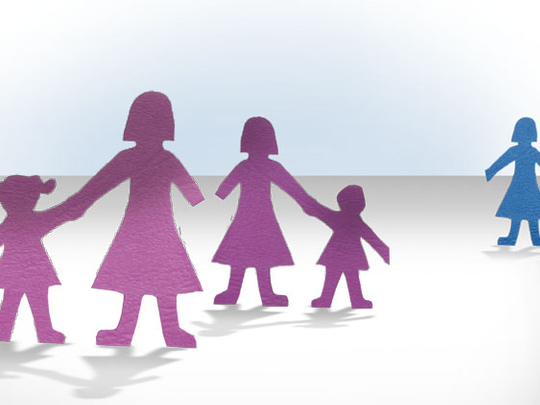
standing alone in the kitchen of my flat, the truth hit me: I would never have a child. I was 44 and, in the preceding 15 years, had run a successful interior design business, travelled extensively and got a first-class degree in English literature. But motherhood had been my one abiding ambition.
Yet here I was, newly separated from my partner of almost five years, in a sparsely furnished flat in London, with no hope of establishing a new relationship before my biological clock judders to a halt. It was as if my dreams lay in tatters. During my 12-year marriage and the promising five-year relationship that followed — with no obvious fertility problems — I hadn't envisaged my life turning out this way.
Working through grief
The emotion was like bereavement, something I had to go through to be able to move forward with my life. And I'm glad to say that during the past two and a half years, I have worked through my grief and begun to carve out a child-free future for myself. However, what I never bargained for on that dark day in January 2009, was that I would feel ostracised in the company of women I had known for years. Women who are different from me in one respect: They are mothers.
Motherhood has become an all-consuming role during the past couple of decades — dominating women's thoughts and conversations — possibly because the pressure on mothers to get it right is greater than ever. When a man has a child, he remains who he always was and becomes a father to boot, but once a woman has a baby, she is a mother first, and perhaps something else, a teacher or a lawyer. I don't blame mothers for their single-issue approach to life; I would probably have been the same. However, the result is that women are separating into two tribes: the mothers and the child-free, and we are struggling to find common ground. It is perhaps all the more significant because the number of women who, like me, will never have children, through choice or circumstance, is steadily growing, with the number of women who now reach menopause without having children at 20 per cent.
So if a fifth of women are child-free, why do we feel so shut out? Perhaps, despite decades of feminism, there's an assumption that the only worthwhile job a woman can do is raise children. Jennifer Leonard, a chartered psychologist and parenting coach, agrees that mothers of young children gravitate towards one another. "Once you have children, your priorities change," she says. "The result is that mothers tend to seek out reassurance about their parenting from one another."
The division between mothers and me was brought home at a party recently, organised by the mother of one of my goddaughters. Many of the guests were friends I hadn't seen for a long time. But when I tried to chat, telling them what I was up to, they couldn't concentrate on what I was saying. I saw panic in their eyes, as if they didn't know how to have a conversation that wasn't about their offspring. I was happy to listen to tales of potty training, broken nights and teenage hormones. I appreciate what pressures they are under and what a difficult job mothering has become. But when these mums began comparing notes about their youngsters, I felt completely excluded.
I don't think they consciously left me out. It's just that our interests are now very different. Eventually, I drifted away and ended up chatting with the men, who were happy to talk about things other than family life. But feeling lonely, and somehow not quite a full-fledged woman, I left early.
I discovered later that I had been invited as an afterthought. This was hurtful, but not surprising. It's not that my friends don't want me around any more, just that their lives as parents, wage-earners and partners leaves them with no time for anything other than family-focused socialising. They bear me no ill will — I have simply dropped out of their world.
Setting up Gateway Women
Since accepting that I would always be child-free, I have set up a group called Gateway Women. Our aim is to support, inspire and empower women aged 35 and over who are either still living in hope of becoming mothers or coming to terms with the knowledge that they never will.
Too often, women who are child-free by circumstance are left with the sense of not having a proper life. And many women who are child-free by choice find themselves vilified as heartless and selfish, lacking some vital quality that would make them "real" women.
We women without children need to become a more cohesive bunch if we're to survive in the Mumsnet era. We want to show how much we have to offer and that we have meaning in our lives — it's just that this meaning is something other than our offspring. I'm going to use the energy that would have gone into raising my family to speak up for child-free women like me. Our tribe is expanding and it's time we had a voice.
— By Jody Day as told to Helen Carroll, Guardian News & Media Ltd











